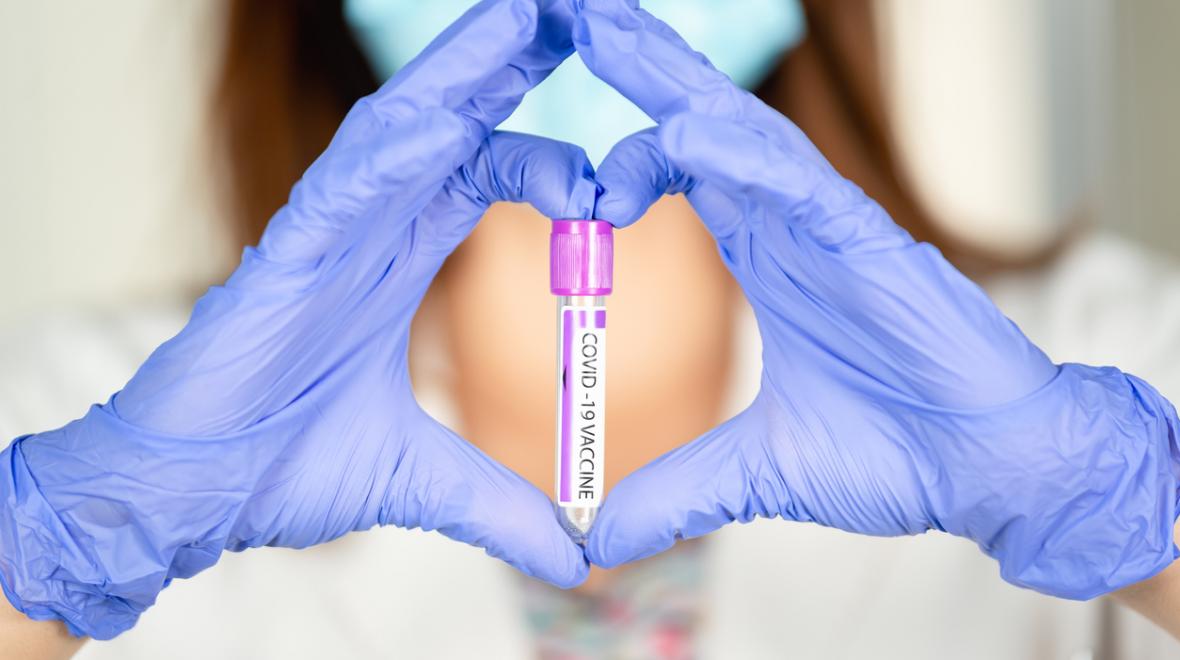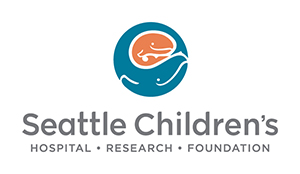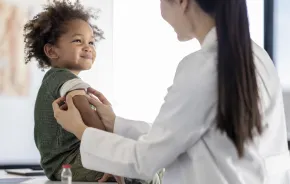
In December 2020, the U.S. Food and Drug Administration (FDA) issued Emergency Use Authorizations (EUAs) for COVID-19 vaccines developed by Pfizer-BioNTech and Moderna. This was hailed as a turning point in the COVID-19 pandemic.
Still, many people are hesitant about these new vaccines for a variety of reasons, and the proliferation of misinformation can make it difficult to know what to believe.
On the Pulse spoke with Seattle Children’s experts, Dr. Douglas Diekema, director of education at Treuman Katz Center for Pediatric Bioethics and chair of Children’s Institutional Review Board Committee, and Dr. Douglas Opel, director of Clinical Ethics about vaccine hesitancy. Their answers were honest, compassionate and substantiated by data.
This excerpted post was originally published on the Seattle Children's On the Pulse blog.

What are the primary reasons people are hesitant to get the vaccine?
Opel: First, I’d like to point out that most Americans are not hesitant to get a COVID-19 vaccine. In fact, nationally we are seeing incredible demand. Among those who are hesitant, I think there are two predominant reasons. One is a concern that the speed at which the vaccines were developed may have compromised safety. Another is that these are our first mRNA [messenger RNA] vaccines, and as a result, some may feel they are too new.
Diekema: Some people are reluctant to get any vaccine. On top of that, the COVID-19 vaccine is under an Emergency Use Authorization. To many people, that translates into an experimental vaccine.
While it hasn’t gotten full approval from the FDA and the amount of data we have is less than usual, we continue to collect data, and the vaccine will almost certainly be fully approved at some point. Even when the EUA was issued, there was reasonably good data about the vaccine’s effectiveness and safety. But many have decided they want to wait until more data is in.
Why are you convinced the vaccine is safe despite the quicker than usual release?
Diekema: There are two kinds of adverse impacts we look at. The first are those that occur soon after vaccination. We have administered the COVID-19 vaccines to enough people to know what those side effects are and to know the vast majority are relatively mild. What we know less about is whether there might be something rare — something that happens to one in 100,000 people or one in a million people — associated with the vaccine. Still, the vast majority of vaccines prove to be safe long-term, and there’s no reason to think this one is different.
Opel: The name “Operation Warp Speed” has led to the perception that shortcuts were taken, but that’s not the case. Safety has been a top priority in all phases, and there will continue to be an emphasis on safety through post-approval monitoring. While steps in the development and testing of the vaccines have been streamlined, none of them have been skipped. Another important point is the FDA only authorized the vaccine after it convened a separate advisory committee that included independent, non-governmental experts who met in a public forum to review the data and transparently discuss whether the evidence justified emergency use. This advisory committee determined an EUA was appropriate.
Diekema: The only thing the speed changes is that we don’t have long-term data and we don’t have quite as many people enrolled in trials. But it’s still a robust process. There was even one additional layer of review in Washington, Oregon and California. The governors of those states assembled their own advisory group to review the data and validate the FDA’s decision.
How do the COVID-19 vaccines compare to others in terms of safety?
Diekema: At this point, we don’t have any evidence they’re any more risky. The COVID-19 vaccines are a little more reactogenic than most vaccines — a higher percentage of people will get symptoms within two days of getting vaccinated. The data suggest about half the people will experience minor symptoms. That means it’s working, that your immune system is doing its job.
Opel: There is an incredibly high safety bar for COVID-19 vaccines. These have already been given to thousands of people to ensure there aren’t any major safety events. From what we know now, these are safe vaccines with minor side effects comparable to other vaccines.
What would you say to someone who’s hesitant about getting the vaccine?
Diekema: The first thing is I had no hesitation about getting this vaccine myself, and I don’t know a lot of people who know the data better than I do. I also tell them it’s got to be a personal decision, but it should be a reasoned decision — not totally based on emotion. The big question is: Do you want to take your chances with this potentially bad disease, or do you want to take your chances with a vaccine that, given our current data, looks like it’s quite safe and effective?
Opel: It’s less about what I would say than what I would not. I think it’s important to do a lot of listening in this situation and acknowledge a person’s concerns. There is some mistrust in the process and systems that developed and authorized these vaccines, and the best way to address this is through listening and validating.
I would also tailor my responses to their individual concerns using accessible language. This is an unusual situation we’re in with vaccines being authorized for emergency use, and it can be confusing to people. We need to use simple factual statements and be clear so people will feel good about making the choice to accept the vaccine when it’s their turn.
Note: The Pfizer-BioNTech vaccine is currently authorized for people ages16 and older, and the Moderna vaccine is currently authorized for people 18 and older. Clinical trials are underway to study the vaccines in younger teens and children.











